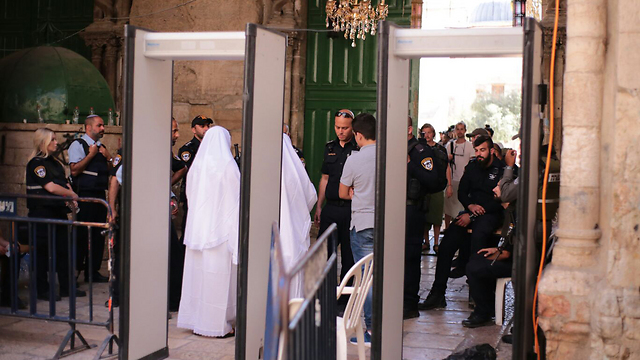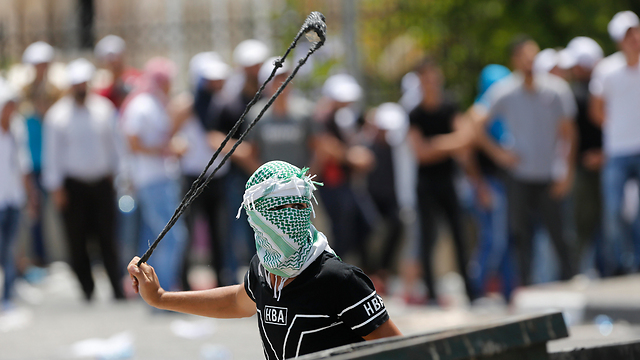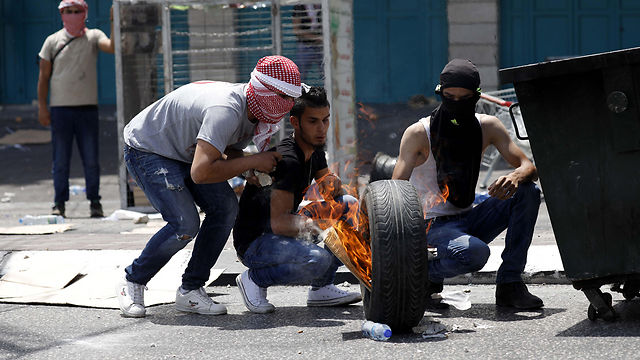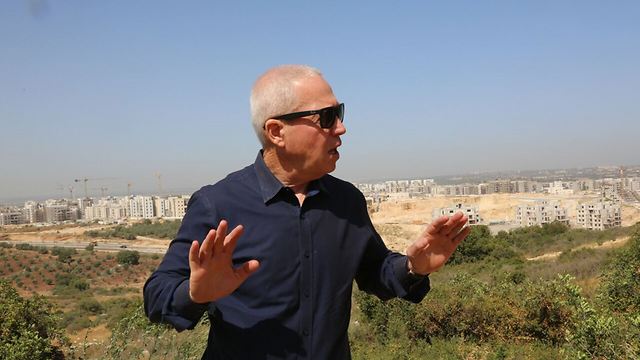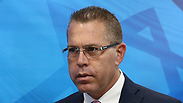
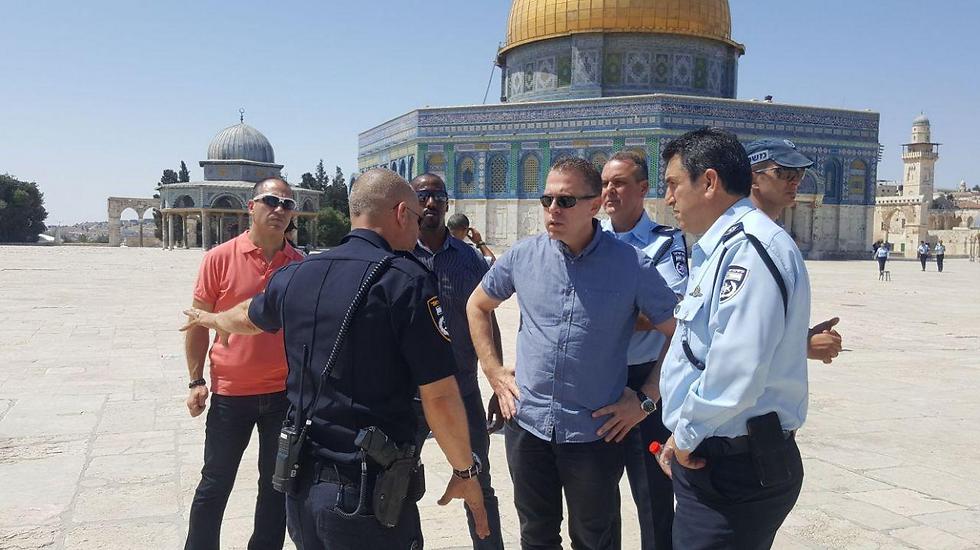
Erdan: Shin Bet, IDF did not raise objections to metal detectors
Despite reports that Shin Bet director warned of possible explosive results of keeping metal detectors for Friday prayers, the public security minister insists 'no one spoke of possible opposition or violence because of the metal detectors.'
Public Security Minister Gilad Erdan claimed Sunday there were no objections from the Shin Bet and IDF to keeping the metal detectors at the entrance to the Temple Mount amid reports to the contrary.
"The prime minister has asked to significantly increase security arrangements on the Mount, and a proposal was made to use metal detectors, something that has been brought up in the past. None of the (defense) officials objected to that proposal, no one spoke of possible opposition or violence because of the metal detectors," Erdan told Ynet.
When specifically asked whether the Shin Bet and IDF objected to leaving the metal detectors in place on Friday despite concerns of violent rioting, Erdan said, "It wasn't an objection. Each body gives its assessments and recommendations in light of the situation. There were assessments—I don't want to say from who—that leaving the metal detectors could lead... to deterioration in the situation if protesters are killed during clashes or some other incident with casualties occurs. This would in turn serve as an excuse for more incitement and violence.
Erdan added that Israel should "not play into the Arab and Palestinian inciters' hands," and noted that "the only consideration that should guide us is how to prevent a terror attack inside the Temple Mount in which automatic weapons or explosives are used."
Four Palestinian rioters were killed in clashes with Israeli security forces over the weekend, three of them on Friday and another on Saturday.
Shin Bet director warns of clashes
Prime Minister Benjamin Netanyahu asked police to set up the metal detectors on Friday, July 14, after the deadly terror attack at the Temple Mount that claimed the lives of two Israeli police officers.
When police told him there were only two or three metal detectors available, he instructed them to procure more metal detectors immediately and without the need to issue a tender.
After a week of protests and violent clashes, the Security Cabinet met on Thursday night to determine whether to keep the metal detectors in place ahead of Friday prayers.
Ministers Yoav Galant and Yuval Steinitz also objected to keeping the metal detectors at the gates of the Temple Mount.
Steinitz expressed concern the crisis on the Temple Mount would lead to rioting in the Arab and Muslim world and could also result in Arab countries cutting ties with Israel.
Galant proposed to immediately open four of the gates, removing the metal detectors from all but one. He argued the Palestinians want the metal detectors to remain as an excuse to close the Temple Mount, which would in turn lead to an explosion. Israel will remove the metal detectors eventually, he asserted, so it is better to do so as soon as possible so as to not "perpetuate the error."
Finance Minister Moshe Kahlon asked Netanyahu, "Why didn't you convene us to approve the metal detectors? Why are you convening us now?" Netanyahu responded that "Things have changed."
Eventually, however, Kahlon left his vote to Netanyahu's discretion, and the prime minister used it to vote in favor of keeping the metal detectors.
Galant explained to Ynet on Sunday that "As long as what they're trying to do is not enter the Temple Mount, the use of metal detectors only serves the other side. Eventually, we'll find a better solution that would entail the use of intelligence, cameras, random searches, and other things. It would allow the flow (of crowds into the Temple Mount), and I hope it'll restore the peace."
He argued that "the use of metal detectors will fail for two reasons. Primarily, because the other side is taking this positive and correct thing of a security measure used everywhere—soccer stadiums, mosques and malls—and uses it against the Israeli system. They're using it to charge the area with the potential for terrorism from those who want to enter the Temple Mount but are prevented from doing so. The result would be different types of violent incidents in different places."
Second, he said, the metal detectors would not allow for tens of thousands of people to enter the Temple Mount at a reasonable time for prayer.
 |















